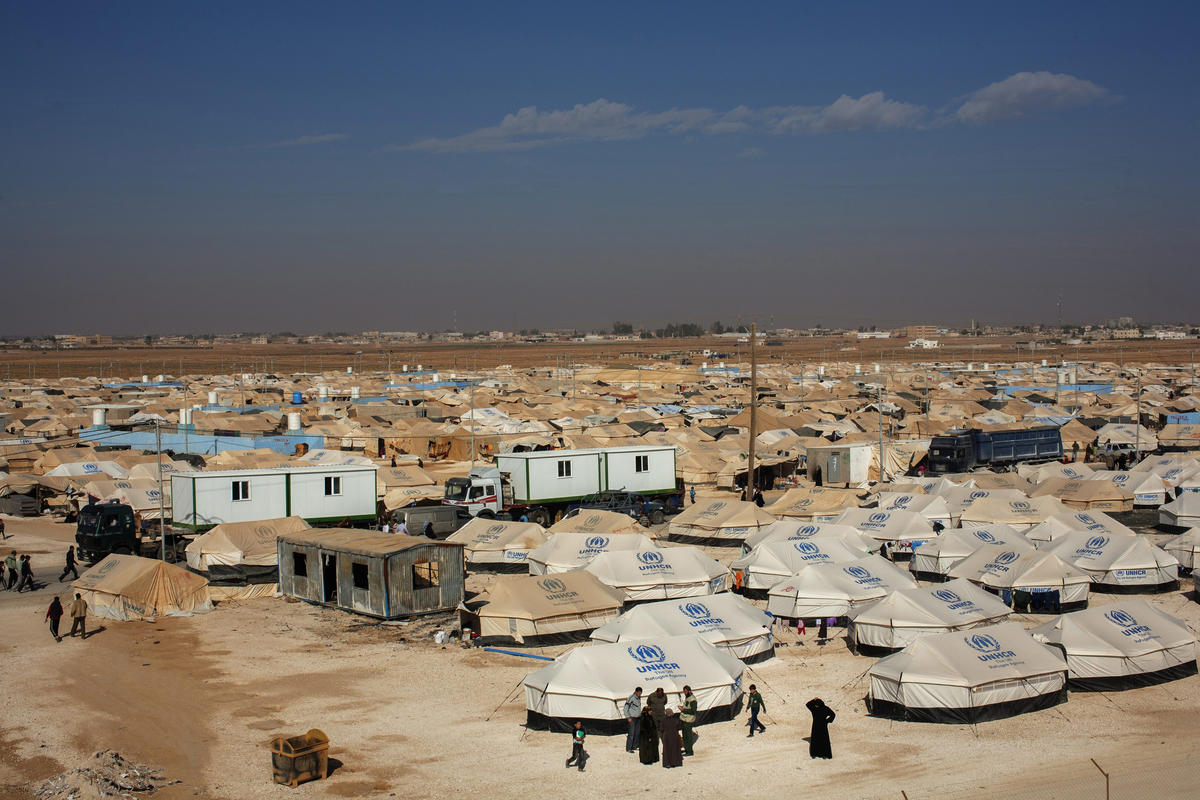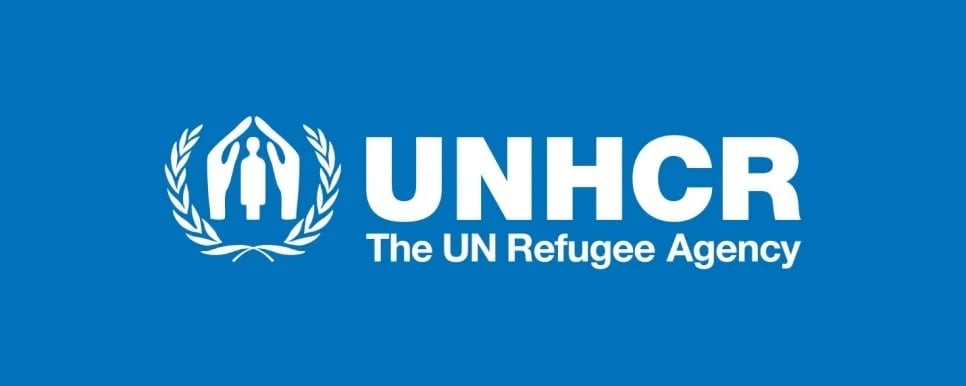Humanity, hope and thoughts of home: Syrian refugees in southern Lebanon
Humanity, hope and thoughts of home: Syrian refugees in southern Lebanon

ABBASIEH, Lebanon, February 25 (UNHCR) - Ali* and his family are living through their third winter in Lebanon, but thoughts of their Syrian home in the city of Idlib are never far away. "If we could go home, we would. But as long as the troubles last we can't," said the 30-year old, recalling the conflict in Syria. "We are thankful for the Lebanese."
Ali and his wife and three children live with his younger brother, Ahmed,* and his family in a single-storey concrete shelter in the village of Abbasieh, which is located near the city of Tyre in south Lebanon.
Despite the driving winter rain lashing the plastic sheeting on their hilltop home, these two families are more fortunate than most of the other almost 1.2 million Syrian refugees spread throughout Lebanon. They live in relatively solid accommodation and have a landlord whom they assist with rent and labour.
"This family is very deserving," said Firas, the Lebanese landlord, who receives around US$265 a month in rent from the two families for their modest lodgings and who has agreed to freeze the rent for the next year. The brothers earn on average US$330 a month working the nearby fields.
More than 80 per cent of Syrian refugees in Lebanon, who live in around 1,700 locations countrywide, rent their accommodation and pay on average US$200 a month. There are no formal refugee camps for Syrians.
Most refugees rent apartments, but as their vulnerability has deepened more and more have had to resort to living in unfinished buildings, garages, abandoned sheds, worksites and tents in informal settlements. Structural improvements are often only of a temporary nature due to the lack of authorization from the government or landlords for something more substantial.
Ali, Ahmed and their families make up part of the almost 140,000 Syrian refugees living in south Lebanon, while most are scattered throughout the east in the Bekaa Valley (412,000), in and around Beirut (339,000) and in the north (285,000).
Recent UNHCR assessments have found that more than half of all Syrian refugees live in sub-standard shelters and this is particularly challenging in the winter months when snow, rain and flooding increase their hardship.
This year is the fourth that UNHCR and partners have provided winter assistance to Syrian refugees in Lebanon, a massive operation whose planning and budgeting begins months in advance to ensure that, despite the myriad funding and logistical challenges, as many of the assessed needs as possible can be met.
Winter monthly assistance has been provided from November onwards, including assisting the most vulnerable families to purchase heating fuel, providing stoves, blankets, weatherproofing kits and other essentials needed to keep people warm and dry.
Working with Lebanese municipalities, partners and refugee outreach volunteers, UNHCR's five offices throughout Lebanon have also established inter-agency response teams as well as making contingency stocks of emergency supplies available countrywide.
The winter programme prioritizes all those identified in advance as most in need, starting with families living in areas situated above 500 metres in altitude, those in very insecure shelters and those who are economically vulnerable. Hundreds of thousands of people, including poor Lebanese, are receiving some kind of winter assistance. This year's carefully planned inter-agency winter operation is providing at least US$75 million in aid for both refugees and needy Lebanese families.
"Since the first Syrian refugees crossed the border into Lebanon almost four years ago, Lebanese communities have extended their hospitality on a truly impressive scale," said UNHCR Representative in Lebanon Ninette Kelley, after meeting the refugee families in Abbasieh.
"Lebanon today faces an unprecedented challenge to manage both its own population and Syrian refugees. It has the highest per capita concentration of refugees in the world and more global support, including for long-term development, is urgently needed."
* Names changed for protection reasons.
By Brian Hansford in Abbasieh, Lebanon









